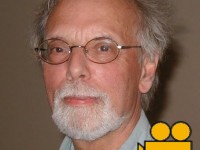For the longest time, teams have been managed, as well as researched, based exclusively on behaviorist tenets: the notion that by focusing on how team members "behave", their collaboration can be made more effective, even 'self authoring', or whatever the latest fad dictated. For the same long time, managers have spoken rather than listened, and if they listened, they only listened to the content of what team members were saying, -- rather than to the structure of team members' thinking, as well as their own, on which speaking is based. What is more, teams have been addressed only by way of purely logical thinking that turns whatever it encounters into an inert object (rather than acknowledging it as a living entity). As a result, the meaning of team work has been driven out of it, and only what team work descriptively "is" has remained standing, yielding predictably shallow team interventions. To change this counter-productive state of affairs is the purpose of Jan and Otto's book, entitled Dynamic Collaboration: Strengthening Self-Organization and Collaborative Intelligence in Teams (ConnectTransform & IDM Press 2018). They succeed at this by demonstrating in detail that behavior is only one dimension out of three that are relevant... Read More...
Category: Video
Effective Team Coaching: Juggling Personalities and Roles
Teams are usually viewed as "flat", disregarding that each of their members is active on a specific level of accountability associated with a specific universe of discourse. What team members are thinking and saying is thus not determined not only by their developmental size of person, but also by the size of their organizational role, and their understanding of the relationship between the two. A team coach or team leader who is disregarding this fact is going to be less effective that s(he) could be. In this webinar, Otto Laske outlines a typology of teams in which both team members' size of person and size of role receive due attention. Read More...
How to cope with cognitive differences in circles (teams)?
This video addresses crucial issues in how to re-organize work so that individuals can deliver work in flexible role systems based on their talent. The notion put forward is that to create organizations following the model of lean and mean start ups will not do away with but will increase the requirement of deep, dialectical thinking. A few major pointers to the required structure of thinking are offered. Read More...
How to become a Learning Organisation as a large Corporate
In this short video, I present a short introduction to CDF, the Constructive Developmental Framework, to show how its use enables large companies under siege coming from very small and nimble companies to fend off competition. I focus on CDF developed at the Interdevelopmental Institute, as a tool for strengthening talent management and promoting better conversations in teams and throughout the corporate culture. find out more about hte related Course: CDF as a business development tool Read More...
Introduction to Cognitive Growth: a possible journey from age 25-100
In this short video I give listeners some examples of differences in phase of cognitive development individuals are typically in. My goal is to sensitize listeners to asking "where am I myself presently as to the structure of my thinking, and how does this determine the world I am seeing as real?" Read More...
Deutsche Einführung zu CDF
Dieses kurze Video hat den Sinn, Sie in den Konstruktiven Entwicklungsrahmen, CDF genannt, einzufuehren. Otto Laske zeigt, wie die CDF Dialogmethode und Denkmethode positiv zu Ihrer Arbeit im Coaching, der Psychotherapie, und der organisatorischen Beratung beitragen kann. Read More...
